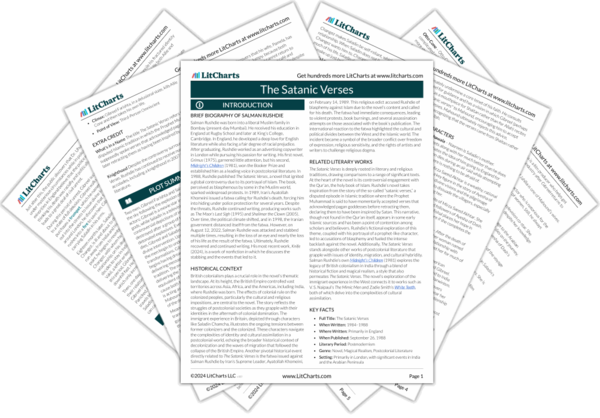Saladin’s decision to leave the past behind represents a significant moment of closure. The moonlit path on the Arabian Sea symbolizes a new beginning, suggesting hope for the future. By turning away from the sea, Saladin rejects the unresolved turmoil of his past, choosing instead to embrace a more grounded future with Zeeny. This final act of turning away from the window and walking forward represents his growth from a man haunted by his past to someone ready to live in the present. Notably, living in the present also means living in India among those whom he has spent his life running away from. Finally, it is worth noting that Saladin’s fate is the inverse of Gibreel’s, even though he seemed to be the devil to Gibreel’s angel earlier in the novel. Once again, this suggests that the core, moral differences between angels and devils are less clearly defined than one might realize.
